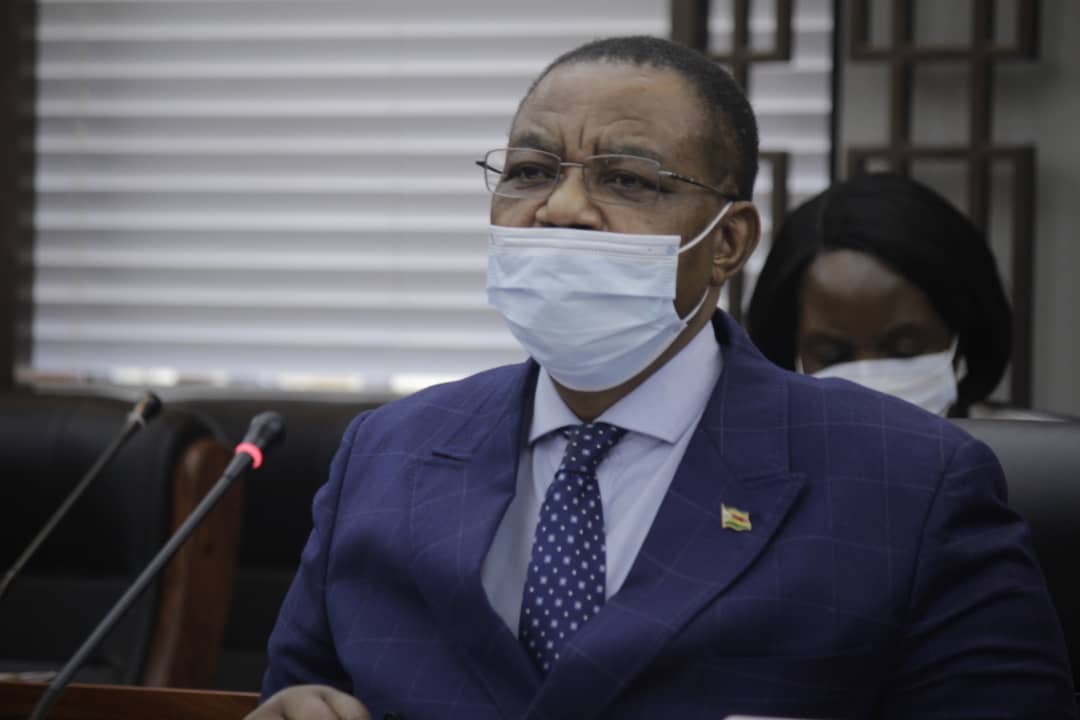By Anyway Yotamu
The government said it will no longer avail foreign currency to assist cabinet ministers and other senior officials seeking medical treatment in health facilities outside Zimbabwe, this was said by Vice President Constantino Chiwenga who is also the Minister of Health and Child Care.
Addressing a press conference in his capacity as Health Minister in Harare on Monday the 7th of September 2020, he said the state had stopped footing the medical bills of all senior government officials in order to maintain the national medical bill which is currently high.
He also promised to improve conditions of service for public health workers who have been on strike demanding better salaries and working conditions.
“We will not export our patients. We will not make referrals to our patients. It is for everybody, ministers. Those who have been going out are you and me. Is it not it? Altogether but that import bill was too high and that is what we want to do away with,” he said.
“Zimbabwe has a national medical bill that is high. It is, therefore, imperative that the country develops a method of containing the import bill through health care innovations for import substitution.
“This entails inverting the import bill burden into export receipts either in part or most importantly in the whole. This will improve the funding of the national health care system.
“We will have hospitals that will specialise in different treatment services across the country. We are restructuring from the village health worker right up to the top hospital.”
Chiwenga said the new structure was a result-orientated set-up that had advantages of the “Triple Helix Model which entails the close need cooperation system between government and private sector”.
“Today, it is with great pleasure that I announce that the first phase of the restructuring of the Health and Child Care Ministry that I was tasked to undertake by President Emmerson Mnangagwa is now complete,” he said.
“The new structure will have nine divisions headed by chief directors including eight specialised departments. The total establishment of the Ministry of Health has not been changed.
“The nine divisions include research, biomedical engineering, biomedical science, biopharmaceutical engineering and production, general service inspectorate, logistics and assets management, personnel and external relations, human resource management, health professional councils and regulations, finance and corporate services, public health policy strategy and production and curative services.
“In the clinical services when the country manages to avoid patients’ export or patients’ referral bill, alone through treatment capability, we shall be able to make an equivalent saving. In other words, we can turn the logic around and aim for medical tourism.”
Turning to the conditions of service for public health workers, Chiwenga said; “We have now reviewed salaries and allowances as a way of government commitment to make the national health care system competitive. To this end and the overall increase in health-specific allowances will be effected by the government.
“We are convinced that salaries and conditions of service are bound to further improve and be more competitive in the short to medium term because of the import substitution measures that the new Ministry of Health and Child Care is now representing. Housing and vehicle loans will also form part of the improved conditions of service.
“As we move forward and face the future with courage, the expectation of government is that the work ethics and work culture within the ministry undergo deep transformation. We expect grievances to be solved amicably through discussion without endangering patients’ lives.
“Never again shall patients’ lives be used as pawns in a game of chess,” he promised.
Senior government officials including Mnangagwa and his two vice-presidents, Chiwenga and Kembo Mohadi are well-known for travelling outside the country to receive treatment following years of neglect of the Zimbabwe public system.
During Zanu PF’s factional fights in 2017, Mnangagwa was airlifted to South Africa, following reports he was “poisoned” at the ruling party’s rally in Gwanda.
Chiwenga this year used a chartered flight several times to travel to China for medical check-ups as he battles chronic ailment that has seen him in and out of the hospital.
Mohadi and Defence minister Oppah Muchinguri were in 2018 also airlifted to South Africa to receive treatment for injuries sustained during a bomb blast at a Zanu campaign rally in Bulawayo.






